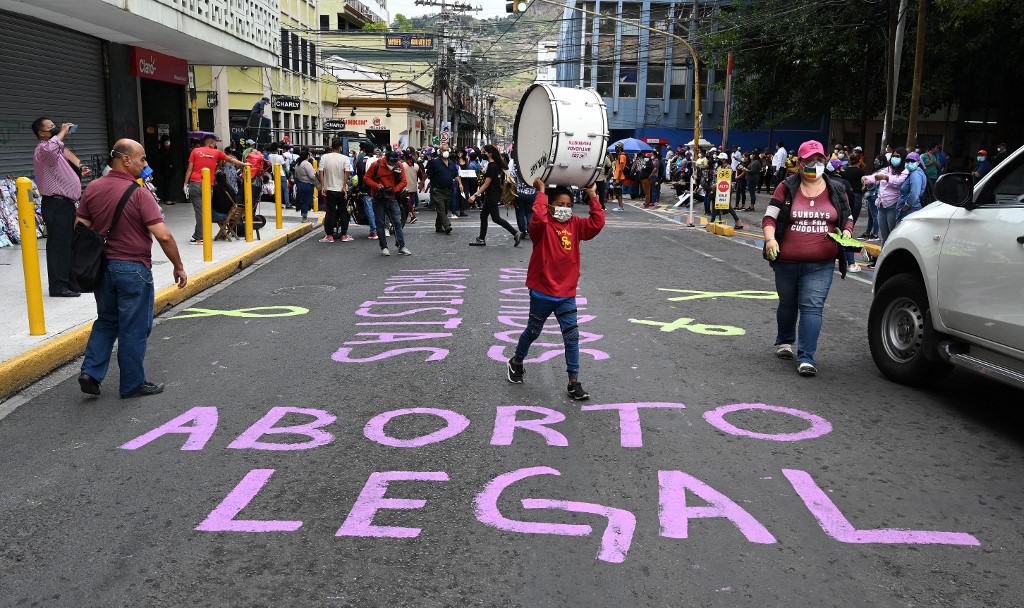An Indigenous woman has reported her country, Honduras, to the UN Human Rights Committee for denying her an abortion after she was raped, rights groups said Wednesday.
It is the first time the Central American country has been brought before the UN for its absolute abortion ban which has meant “forced motherhood” for countless women and girls, said the Center for Reproductive Rights, an NGO supporting the case brought by the woman identified only as Fausia.
Every day in Honduras, three girls younger than 14 are “compelled to sustain pregnancies resulting from rape and become mothers,” the center said in a statement with four other NGOs, citing health ministry data from 2022.
“The lack of access to emergency contraception pills (ECP) and the criminalization of abortion impacts their rights to life, health, integrity, equality, and non-discrimination,” it added.
In Latin America, elective abortion is legal in Mexico, Argentina, Colombia, Cuba and Uruguay. It is banned outright, without exceptions for health risks or other circumstances, in El Salvador, Nicaragua, Honduras, Haiti and the Dominican Republic.
The so-called morning-after pill was also banned in Honduras until recently, and was not available to Fausia, then 34. Regina Fonseca of the Honduras Center for Women’s Rights, which is assisting Fausia in her case, said the plaintiff was willing to go “all the way to achieve justice” and hopefully spare other women a similar fate.
The NGO statement said Fausia was attacked by two men, and raped by one of them, “in retaliation for her work protecting her land as an environmental human rights defender.”
She became pregnant as a result, “causing her serious physical and mental suffering.” In recent years, she has had to move 10 times due to threats, said Fonseca.
“With this case, the participating organizations aspire to secure a directive from the UN Human Rights Committee mandating the Honduran State to amend its legislative framework,” said the statement.
“Fausia’s case stands as a prime example of the numerous human rights violations that arise from the criminalization of an essential health service.” Legal reform seems unlikely though, with Honduras’s Congress dominated by socially conservative parties.






